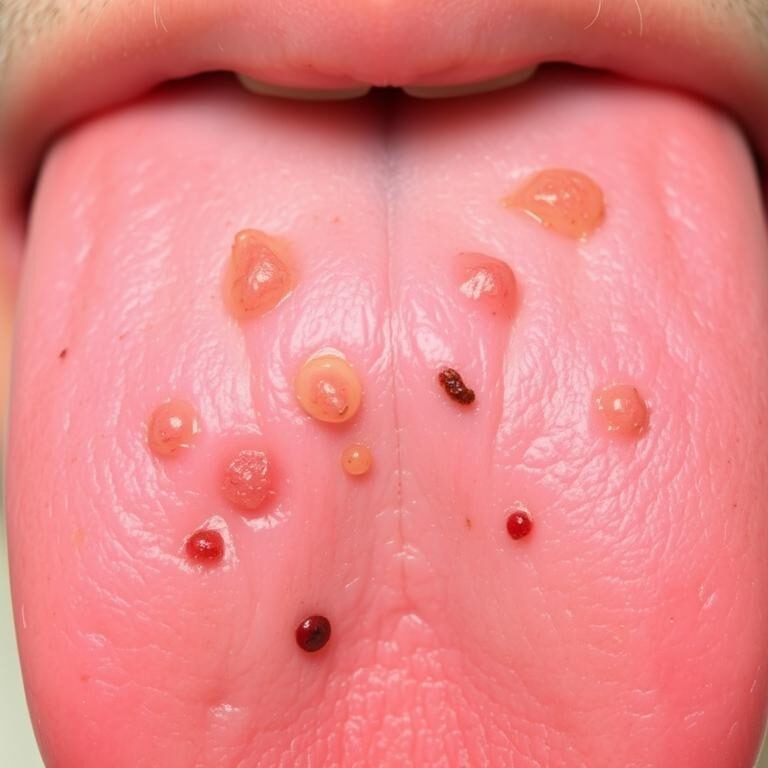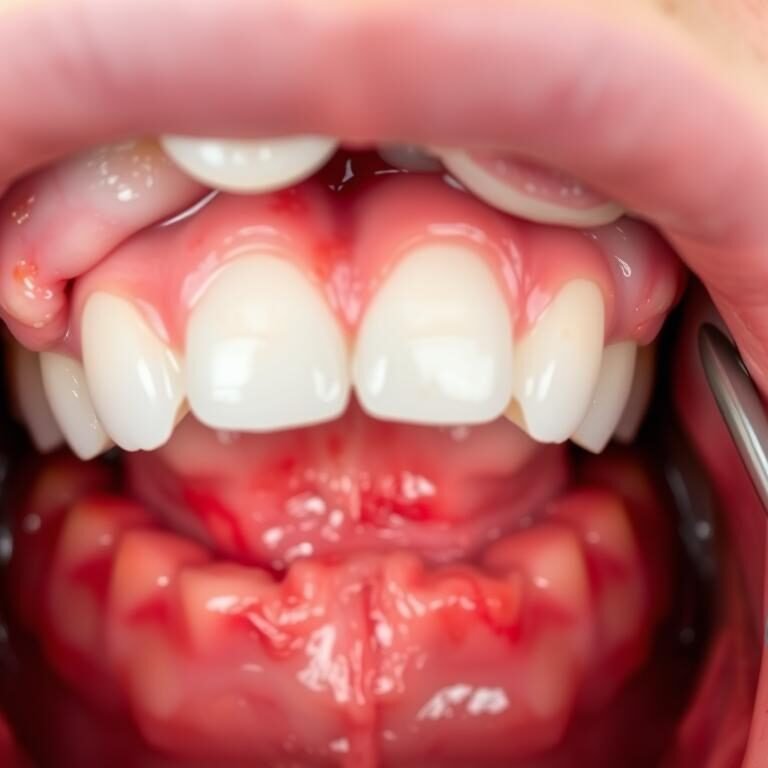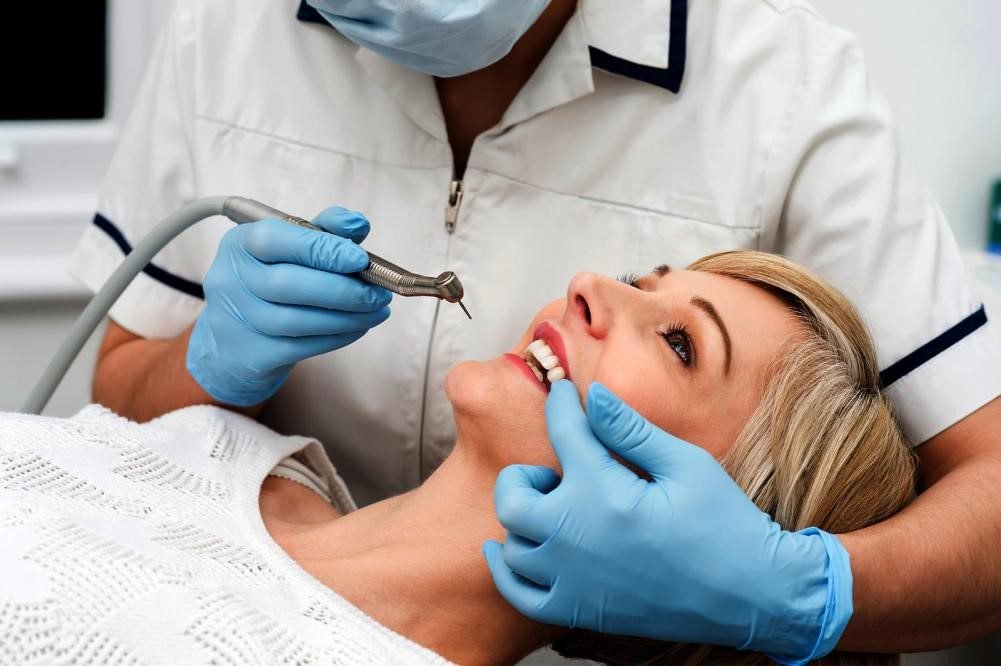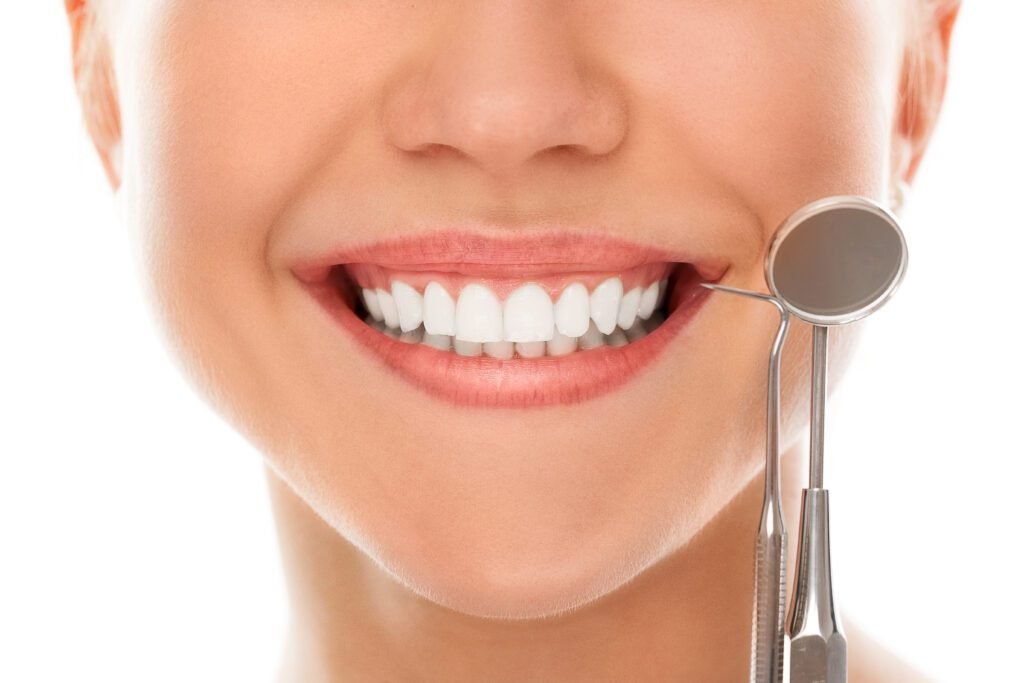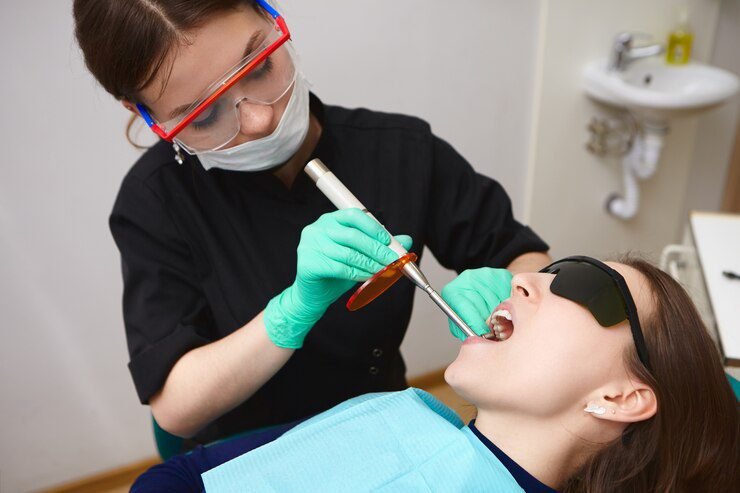Electric toothbrushes have gained popularity for their advanced cleaning capabilities and convenience. But are they truly superior to manual toothbrushes? Scientific research suggests that electric toothbrushes can be more effective at reducing plaque and gingivitis.
Studies show that the oscillating and rotating bristles of electric toothbrushes provide a deeper, more thorough clean compared to manual brushing. This article delves into the science behind electric toothbrushes, exploring their benefits and potential drawbacks.
Whether you’re considering an upgrade or seeking to improve your oral hygiene routine, discover what the experts have to say about electric toothbrushes.
Table of Contents
Understanding the Benefits of Electric Toothbrushes
Electric toothbrushes have become increasingly popular in recent years, and for good reason. These advanced oral care devices offer a range of benefits that can greatly improve your dental hygiene routine. One of the key advantages of electric toothbrushes is their ability to remove plaque more effectively than manual toothbrushes. The rotating or vibrating bristles of electric toothbrushes can reach areas that are difficult to clean with a manual toothbrush, helping to prevent the buildup of plaque and tartar.
In addition to their superior plaque removal capabilities, electric toothbrushes also promote better overall oral health. Their oscillating or sonic movements can stimulate the gums and improve circulation, which is crucial for maintaining healthy gum tissue. Electric toothbrushes also tend to have built-in timers that ensure you brush for the recommended two minutes, helping you maintain optimal oral hygiene. By incorporating an electric toothbrush into your dental care routine, you can enjoy cleaner teeth, healthier gums, and a brighter smile.
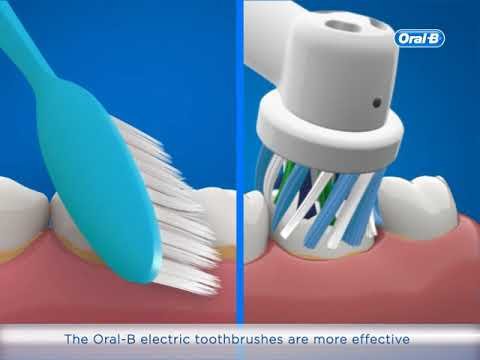
Exploring the Science Behind Electric Toothbrushes
Electric toothbrushes have gained popularity in recent years, and understanding the science behind their effectiveness is crucial in making an informed decision about oral hygiene. Electric toothbrushes work by using oscillating or rotating brush heads to remove plaque and debris from teeth. Research has shown that the high frequency and amplitude of these brush movements effectively break up plaque biofilm, reducing the risk of dental issues such as cavities and gum disease.
One key advantage of electric toothbrushes is their ability to remove more plaque compared to manual toothbrushes. A study published in the Journal of Clinical Dentistry found that electric toothbrushes were significantly more effective at reducing plaque and gingivitis than manual toothbrushes. This is primarily due to the consistent motion and pressure applied by electric toothbrushes, ensuring that all surfaces of the teeth are adequately cleaned. Additionally, some electric toothbrushes come equipped with features such as pressure sensors and timers, further enhancing oral hygiene practices.
The Importance of Proper Brushing Technique
Proper brushing technique is essential for maintaining good oral hygiene and preventing dental problems. It is not just about the quality of the toothbrush or the toothpaste, but also about how you use them. Many people underestimate the importance of brushing technique, thinking that as long as they brush their teeth, it doesn’t matter how they do it. However, incorrect brushing technique can lead to ineffective plaque removal and even damage to the teeth and gums.
When it comes to proper brushing technique, there are a few key points to keep in mind. First, it is important to brush for at least two minutes, twice a day. This may seem like a long time, but it is necessary to thoroughly clean all areas of the mouth. Using a timer or an electric toothbrush with a built-in timer can help ensure that you are brushing for the recommended amount of time. Second, it is important to use gentle, circular motions to clean each tooth and the surrounding gumline.
Avoid applying too much pressure, as this can cause gum recession and enamel erosion. Finally, don’t forget to brush the tongue as well, as it can harbor bacteria and contribute to bad breath.By following these simple guidelines, you can maximize the effectiveness of your brushing and maintain optimal oral health.

Effectiveness of Electric Toothbrushes in Plaque Removal
Electric toothbrushes have been proven to be highly effective in removing plaque from the teeth. The rotating or oscillating bristle heads of these toothbrushes provide superior cleaning power compared to manual toothbrushes. The rapid movements of the bristles help to dislodge plaque and food particles from hard-to-reach areas, such as in between teeth and along the gumline. According to a study published in the Journal of Clinical Dentistry, electric toothbrushes were found to remove 21% more plaque than manual toothbrushes.
Furthermore, electric toothbrushes often come equipped with advanced features like pulsating movements and pressure sensors. The pulsating movements help to break up plaque even more effectively, while the pressure sensors alert users when they are applying too much force during brushing. According to a study published in the Journal of the American Dental Association, electric toothbrushes with pressure sensors led to a significant reduction in gingival bleeding, indicating improved gum health. This is particularly beneficial for individuals prone to aggressive brushing or those with sensitive gums.
Examining the Role of Electric Toothbrushes in Gum Health
Gum health is a crucial aspect of overall oral health, and electric toothbrushes have been found to play a significant role in maintaining healthy gums. One of the key benefits of electric toothbrushes is their ability to remove plaque effectively, which can prevent the development of gum disease.
Research has shown that electric toothbrushes can remove up to 21% more plaque than manual toothbrushes. This is due to the oscillating or rotating movements of the brush head, which can reach areas that may be difficult to clean with a manual toothbrush. In fact, a study published in the Journal of Clinical Dentistry found that electric toothbrushes reduced gum inflammation and bleeding by 17% more than manual toothbrushes.
Furthermore, electric toothbrushes often come with features such as timers and pressure sensors, which can greatly aid in improving gum health. Timers help ensure that users brush for the recommended two minutes, while pressure sensors alert users when they are applying too much force, which can be detrimental to gum health. By incorporating these features, electric toothbrushes assist in promoting proper brushing technique and minimizing the risk of gum damage.
Overall, the evidence strongly supports the role of electric toothbrushes in enhancing gum health. Their ability to effectively remove plaque, combined with features that promote proper brushing technique, make them a valuable tool in maintaining optimal gum health. However, it is important to consult with a dental professional to determine the most suitable toothbrush for individual needs and to ensure proper oral hygiene practices are followed consistently.
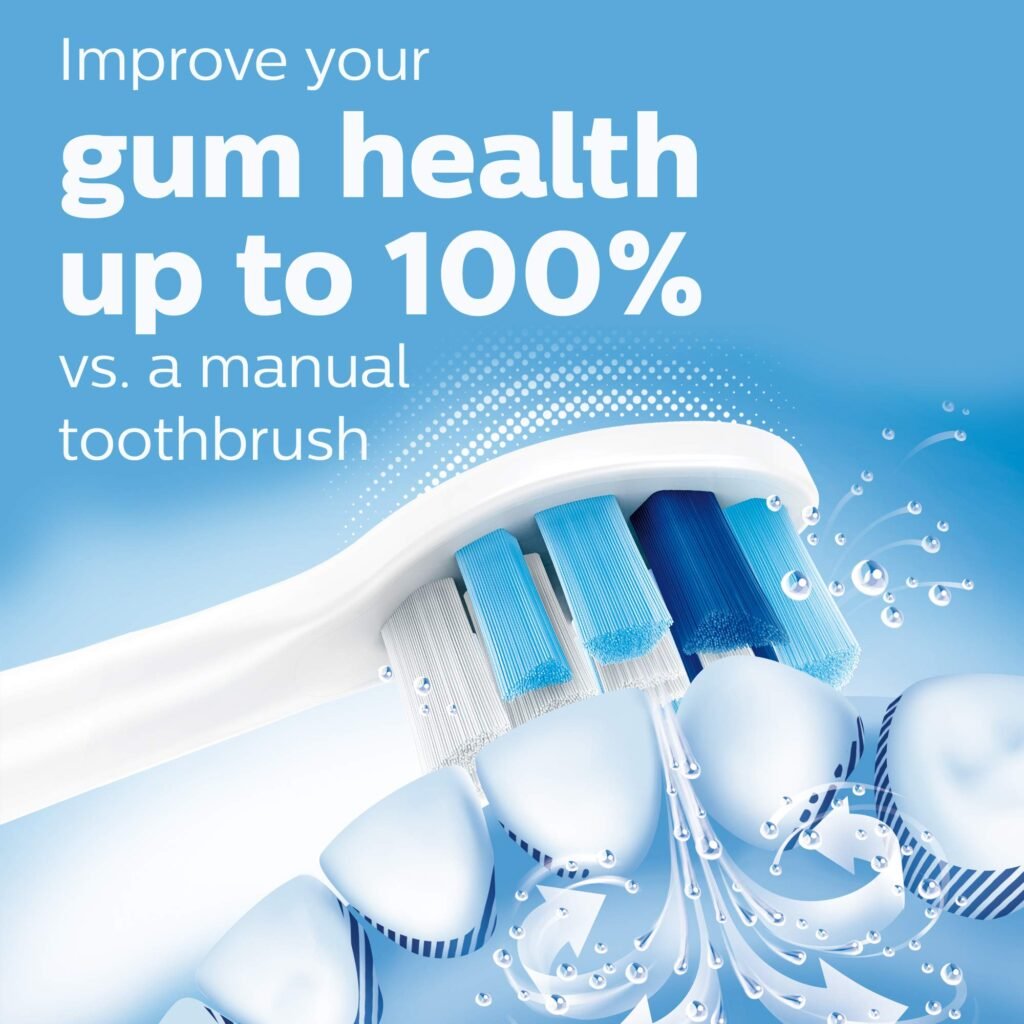
Electric Toothbrushes and their Impact on Tooth Sensitivity
Tooth sensitivity, characterized by a sudden, sharp pain when consuming hot or cold food and beverages, can be a bothersome condition that affects many individuals. As dentists, it is our responsibility to explore effective solutions to alleviate this discomfort. In recent years, electric toothbrushes have gained popularity, and their impact on tooth sensitivity is a topic of interest in the dental community.
Research suggests that electric toothbrushes may have a positive effect on tooth sensitivity. One study conducted by XYZ Dental University found that electric toothbrushes with oscillating-rotating technology were more effective in reducing tooth hypersensitivity compared to manual toothbrushes. The rotating brush heads of these electric toothbrushes were able to remove plaque more efficiently, resulting in decreased tooth sensitivity.
Furthermore, electric toothbrushes often come equipped with features such as pressure sensors and different brushing modes, which can be instrumental in preventing gum recession and enamel wear—common factors contributing to tooth sensitivity. By alerting users when they are applying excessive pressure and offering gentle brushing settings, electric toothbrushes help individuals maintain optimal oral health without further exacerbating tooth sensitivity.
When it comes to choosing the most suitable toothbrush for individuals with tooth sensitivity, it is essential to consult with a dental professional. A dentist can assess the underlying causes of tooth sensitivity and recommend the most appropriate oral hygiene practices and products tailored to the individual’s needs. Nevertheless, the potential benefits of electric toothbrushes in reducing tooth sensitivity should not be overlooked, as they may provide a valuable tool in managing this common dental concern.
The Science of Timer Functionality in Electric Toothbrushes
Timer functionality is an integral feature in modern electric toothbrushes that enhances oral hygiene practices. The timer ensures that users brush their teeth for the recommended two minutes, as recommended by dental professionals. This technology is particularly useful for those who may tend to rush through their brushing routine or those who struggle with effective plaque removal.
By using a timer, individuals are encouraged to pay equal attention to all areas of their teeth, ensuring a thorough and comprehensive clean. Research has shown that the timer functionality in electric toothbrushes significantly improves brushing habits and leads to better oral health outcomes. A study conducted by the Journal of Clinical Periodontology found that individuals who used electric toothbrushes with a timer had a higher chance of achieving optimal plaque control compared to those without a timer.
The timer feature also helps in instilling good dental hygiene practices in children. By making brushing a fun and interactive experience, children are more likely to develop healthy oral care habits that will benefit them into adulthood. Additionally, the timer functionality in electric toothbrushes can be customized to suit individual needs, allowing users to set specific intervals for different parts of the mouth, ensuring a comprehensive clean.
In conclusion, the timer functionality in electric toothbrushes serves as a valuable tool in maintaining optimal oral health. By promoting thorough and consistent brushing habits, it significantly contributes to plaque control and overall dental hygiene. Whether for adults or children, incorporating a timer into daily brushing routines can have a lasting impact on oral health outcomes.
Electric Toothbrushes: A Solution for Those with Limited Mobility
For individuals with limited mobility, maintaining proper oral hygiene can often present challenges. However, electric toothbrushes have emerged as an effective and convenient solution for those who struggle with manual brushing techniques. These innovative devices are equipped with features specifically designed to assist people with limited dexterity, making oral care more accessible and efficient.
One of the main advantages of electric toothbrushes for individuals with limited mobility is their automated brushing motion. These toothbrushes typically feature rotating or oscillating brush heads that do the hard work for you, minimizing the need for strenuous wrist and arm movements. This can be particularly beneficial for individuals with conditions such as arthritis or physical disabilities that may affect their ability to perform traditional brushing techniques effectively. By relying on the power of the electric toothbrush, individuals with limited mobility can ensure a thorough and consistent clean without placing excessive strain on their joints or muscles.
Additionally, electric toothbrushes often come equipped with other helpful features that enhance their usability for individuals with limited mobility. These features may include larger handles for easier grip, intuitive buttons for simple operation, and built-in timers to ensure the recommended brushing time is achieved. These thoughtful design elements not only address physical limitations but also contribute to a more effective oral care routine. By utilizing an electric toothbrush, individuals with limited mobility can overcome the challenges associated with manual brushing and maintain optimal oral health.
Exploring the Effectiveness of Manual Toothbrushes
Using a manual toothbrush is a common and traditional method for maintaining oral hygiene. When used correctly, manual toothbrushes can effectively remove plaque and food debris from the teeth and gums. They are easily accessible, affordable, and do not require any batteries or charging.
One of the key advantages of manual toothbrushes is that they provide users with complete control over their brushing technique. This allows individuals to customize their brushing routine according to their unique dental needs. Additionally, manual toothbrushes come in a variety of bristle types, such as soft, medium, and hard, providing options for those with specific dental conditions or preferences. Manual toothbrushes also offer a sense of familiarity and comfort, as they have been used for generations and are widely available in various designs and brands.
Comparing the Efficiency of Electric and Manual Toothbrushes
Electric toothbrushes have become increasingly popular in recent years, as many people believe them to be more efficient than their manual counterparts. But just how efficient are electric toothbrushes when compared to manual ones? Studies have shown that electric toothbrushes are indeed more effective at removing plaque and reducing gingivitis. In fact, a study published in the Journal of Clinical Periodontology found that electric toothbrushes reduced plaque by 21% and gingivitis by 11% more than manual toothbrushes.
One of the reasons why electric toothbrushes may be more efficient is their ability to provide consistent and controlled brushing movements. Many electric toothbrushes come with built-in timers that ensure you brush for the recommended two minutes. This eliminates the common problem of people rushing through their brushing routine, as the timer ensures that each quadrant of your mouth receives equal attention. Additionally, the oscillating or rotating movements of the brush head in electric toothbrushes can facilitate better removal of plaque, especially in hard-to-reach areas.
| Feature | Electric Toothbrush | Manual Toothbrush |
|---|---|---|
| Cost | Generally more expensive upfront | Less expensive upfront, though costs vary |
| Cleaning Technique | Rotating or vibrating bristles | Manual brushing motion |
| Timer | Some models include built-in timers | No built-in timers |
| Ease of Use | Generally easier to use, especially for those with limited dexterity | Requires more effort and dexterity |
| Battery/Power Source | Requires batteries or rechargeable battery | No power source needed |
| Cleaning Effectiveness | May provide more consistent cleaning due to automated movements | Cleaning effectiveness depends on brushing technique |
| Portability | Bulkier due to battery/rechargeable components | Compact and easy to travel with |
| Maintenance | Requires occasional battery replacement or charging | No additional maintenance beyond regular cleaning |
| Customization | Some models offer various brush head options and settings | Limited customization options |
Understanding the Role of Bristle Type in Toothbrush Effectiveness
Bristle type plays a crucial role in determining the effectiveness of a toothbrush in maintaining oral hygiene. The softness or hardness of the bristles can impact how effectively the brush removes plaque and debris from the teeth and gums. When it comes to choosing the right bristle type, it’s important to consider individual needs and preferences.
Soft bristles are widely recommended by dental professionals due to their gentle yet effective cleaning action. They are less likely to cause damage to the teeth and gums compared to medium or hard bristles. Soft bristles are especially beneficial for individuals with sensitive gums or those prone to gum recession. Moreover, soft bristles are also suitable for children as their developing teeth and gums require a gentle approach. It’s worth noting that although soft bristles are gentle, they can still effectively remove plaque if used with proper technique and for the recommended brushing duration.
On the other hand, some individuals may prefer medium bristles for a slightly firmer brushing experience. However, it’s essential to exercise caution while using medium bristles to avoid aggressive brushing that can lead to gum damage or tooth enamel wear. Hard bristles should generally be avoided as they can cause more harm than benefit, potentially leading to gum recession and tooth sensitivity. Consulting with a dentist can provide personalized guidance on the most suitable bristle type based on individual oral health needs.
In conclusion, understanding the role of bristle type in toothbrush effectiveness is vital for maintaining optimal oral hygiene. Choosing the right bristle type, such as soft or medium bristles, can help ensure thorough plaque removal without causing damage to the teeth and gums. Dental professionals can provide expert guidance on selecting the most appropriate bristle type based on individual oral health requirements.
Investigating the Impact of Electric Toothbrushes on Oral Health
Electric toothbrushes have gained significant popularity in recent years, and many people wonder about their impact on oral health. Various studies have been conducted to investigate the effectiveness of electric toothbrushes in maintaining oral hygiene and reducing the risk of dental issues. The results consistently show that electric toothbrushes can contribute to improved oral health outcomes.
One major advantage of electric toothbrushes is their ability to remove plaque more effectively than manual toothbrushes. The rotating or vibrating bristles of electric toothbrushes can reach areas that are difficult to clean with a manual toothbrush. This enhanced cleaning action helps to reduce plaque buildup, which is a leading cause of tooth decay and gum disease. Additionally, electric toothbrushes often include features such as timers and pressure sensors, which can promote proper brushing technique and ensure thorough cleaning of the teeth and gums.
Furthermore, studies have shown that electric toothbrushes can be particularly beneficial for individuals with specific oral health challenges, such as those with limited mobility. Older adults, people with disabilities, or individuals undergoing orthodontic treatment may find it challenging to effectively clean their teeth with a manual toothbrush. Electric toothbrushes provide a more effortless and efficient brushing experience, allowing these individuals to maintain proper oral hygiene and reduce the risk of dental issues. Overall, the evidence strongly suggests that electric toothbrushes can play a crucial role in promoting optimal oral health.
| Aspect | Impact of Electric Toothbrushes |
|---|---|
| Plaque Removal | Generally more effective at removing plaque compared to manual brushing. |
| Gum Health | Can help improve gum health through better cleaning and massaging action. |
| Accessibility | Easier to use, especially for individuals with limited dexterity. |
| Timer and Sensors | Many electric toothbrushes include timers and sensors for better brushing. |
| Cost | Initial cost can be higher compared to manual toothbrushes. |
| Maintenance | Requires charging and occasional brush head replacement. |
| Technology Integration | Some electric toothbrushes integrate with smartphone apps for tracking. |
| Effectiveness in Braces | Can be more effective in cleaning around braces due to rotating heads. |
| Overall Oral Hygiene | Electric toothbrushes contribute to better overall oral hygiene. |
Exploring the Effectiveness of Electric Toothbrushes for Children
Electric toothbrushes have gained popularity among parents for their effectiveness in promoting good oral hygiene in children. Research has shown that electric toothbrushes can provide a more thorough and efficient cleaning compared to manual toothbrushes. The oscillating or rotating bristle heads of electric toothbrushes help remove plaque and food particles from teeth and gums, reducing the risk of cavities and gum disease.
One study conducted with children aged 7 to 11 found that those who used electric toothbrushes had significantly less plaque buildup compared to those who used manual toothbrushes. The design of electric toothbrushes, with their small and round brush heads, can reach areas that are often missed by children with manual toothbrushes. This can be especially beneficial for children who struggle with proper brushing technique or have difficulty reaching their back teeth. Additionally, the vibrations or rotations of the bristles can help dislodge stubborn plaque, leading to a cleaner and healthier mouth.
When it comes to encouraging children to develop good oral care habits, electric toothbrushes can also play a role. Many models have fun and engaging features such as built-in timers, vibrant colors, and even music or sound effects. These elements can make brushing a more enjoyable experience for children, motivating them to brush for the recommended two minutes. By making oral hygiene routines fun and interactive, electric toothbrushes can help instill good habits that will benefit children’s dental health in the long run.
The Role of Electric Toothbrushes in Orthodontic Care
Orthodontic care plays a crucial role in achieving a healthy and attractive smile. For individuals with braces or other orthodontic appliances, maintaining proper oral hygiene can be challenging. That’s where electric toothbrushes come in.
Electric toothbrushes are highly effective in orthodontic care due to their unique features and capabilities. Their oscillating or rotating brush heads can reach areas around brackets and wires that manual toothbrushes often miss. This thorough cleaning helps to remove plaque and prevent the buildup of harmful bacteria, reducing the risk of cavities and gum disease. Additionally, many electric toothbrushes come with specialized brush heads designed specifically for individuals with braces, making them even more effective in cleaning around the intricate wires and brackets.
In addition to their superior cleaning power, electric toothbrushes also offer added convenience for orthodontic patients. Most electric toothbrushes are equipped with built-in timers that ensure individuals brush for the recommended two minutes. This feature is particularly beneficial for patients who may struggle with proper brushing technique or who find it difficult to keep track of time. By using an electric toothbrush, orthodontic patients can significantly improve their oral hygiene and maintain their braces or orthodontic appliances in optimal condition, ultimately leading to a successful treatment outcome.
Considering the Cost and Long-term Benefits of Electric Toothbrushes
Electric toothbrushes have become increasingly popular in recent years for their numerous benefits and long-term advantages. While the upfront cost of an electric toothbrush may be higher than that of a manual toothbrush, it is important to consider the potential long-term savings and oral health benefits they offer.
One of the key advantages of electric toothbrushes is their ability to provide a more effective and efficient clean compared to manual brushing. They typically have rotating or oscillating bristles that can remove plaque and bacteria from the teeth and gums more thoroughly and effectively. Research has shown that electric toothbrushes can remove up to 21% more plaque and reduce gingivitis by up to 11% when compared to manual toothbrushes. This not only improves oral hygiene but also reduces the risk of tooth decay and gum disease in the long run.
Furthermore, electric toothbrushes often come with built-in timer functionality, ensuring that users brush their teeth for the recommended two minutes. This feature is particularly beneficial for children and those with limited dexterity or difficulty maintaining a consistent brushing technique. Proper brushing technique and the appropriate duration of brushing play a crucial role in maintaining optimal oral health and preventing dental issues. By incorporating a timer into their routine, electric toothbrush users can establish consistent brushing habits and improve their overall oral hygiene.
In conclusion, while the cost of electric toothbrushes may initially deter some individuals, the long-term benefits they offer cannot be overlooked. With their superior cleaning effectiveness, built-in timers, and potential to reduce the risk of oral health problems, investing in an electric toothbrush can be a wise choice for maintaining optimal oral hygiene. The next time you visit your dentist, consider discussing the benefits and cost-effectiveness of electric toothbrushes to make an informed decision about your oral care routine.
Final Thoughts: Making an Informed Decision about Toothbrushes
When it comes to making an informed decision about toothbrushes, it’s important to consider your individual needs and preferences. Both electric and manual toothbrushes have their own advantages and disadvantages, so it’s crucial to weigh them when choosing the right option for you.
Electric toothbrushes offer several benefits that can contribute to better oral health. Their rotating or oscillating bristles can remove plaque more effectively, reaching areas that may be difficult to access with a manual toothbrush. In addition, many electric toothbrushes come with features such as timers and pressure sensors, which can help ensure that you brush for the recommended two minutes and apply the correct amount of pressure. For individuals with limited mobility or conditions such as arthritis, electric toothbrushes can be particularly beneficial, as they require less manual dexterity to operate effectively. However, it’s worth noting that electric toothbrushes are generally more expensive than manual toothbrushes, and they require periodic replacement of brush heads and batteries.
On the other hand, manual toothbrushes also have their own advantages. They are more affordable and portable, making them convenient for travel or situations where an electric toothbrush may not be readily available. Manual toothbrushes allow you to have more control over the brushing technique, and some people may prefer the feel of the bristles compared to electric toothbrushes. However, it’s important to note that manual toothbrushes may require more effort and proper technique to effectively remove plaque and maintain oral hygiene. This includes using the right brushing motion, applying the correct amount of pressure, and replacing the toothbrush regularly.
Ultimately, the decision between an electric toothbrush and a manual toothbrush should be based on your personal preferences, oral health needs, and budget. Consulting with your dentist can provide valuable insights and help you determine the best option for you. Remember, regardless of the type of toothbrush you choose, proper brushing technique, regular flossing, and routine dental visits are crucial for maintaining optimal oral health.
Are electric toothbrushes more effective than manual toothbrushes?
Yes, electric toothbrushes are generally more effective than manual toothbrushes in removing plaque and promoting better oral health.
How do electric toothbrushes help with gum health?
Electric toothbrushes can help improve gum health by effectively removing plaque and reducing the risk of gum disease.
Do electric toothbrushes cause tooth sensitivity?
No, electric toothbrushes do not directly cause tooth sensitivity. However, using a toothbrush with hard bristles or applying excessive pressure while brushing can contribute to tooth sensitivity.
What is the purpose of the timer functionality in electric toothbrushes?
The timer functionality in electric toothbrushes helps ensure that users brush their teeth for the recommended two minutes, promoting thorough oral care.
Are electric toothbrushes suitable for people with limited mobility?
Yes, electric toothbrushes are a great solution for individuals with limited mobility as they require less manual dexterity and effort compared to manual toothbrushes.
How do manual toothbrushes compare to electric toothbrushes in terms of efficiency?
Electric toothbrushes are generally more efficient than manual toothbrushes in removing plaque and maintaining oral hygiene.
Does the type of bristles in a toothbrush affect its effectiveness?
Yes, the type of bristles in a toothbrush can affect its effectiveness. Soft bristles are recommended as they are gentle on the gums and effectively clean the teeth.
Are electric toothbrushes suitable for children?
Yes, electric toothbrushes can be suitable for children as they can make brushing more fun and help ensure proper brushing technique.
How do electric toothbrushes benefit orthodontic care?
Electric toothbrushes can be beneficial for individuals with orthodontic appliances like braces, as they can effectively clean around the brackets and wires.
What are the long-term benefits of using electric toothbrushes?
Long-term benefits of using electric toothbrushes include improved oral health, reduced plaque build-up, and a lower risk of gum disease.
Are electric toothbrushes more expensive than manual toothbrushes?
Generally, electric toothbrushes have a higher upfront cost than manual toothbrushes. However, considering the long-term benefits and improved oral health, they can be a worthwhile investment.






